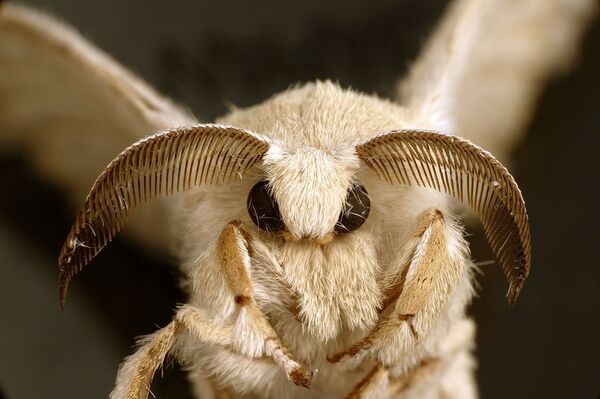In her piece, published by RIA Novosti, Pichugina recalled the story of medieval perfumer Jean-Baptiste Grenouille, the lead character in the cult hit novel by Patrick Suskind, who created potions which made people fall hopelessly in love with him. Grenouille's potion included the preserved scents of beautiful young women, whom he killed in his lust for the power of attraction.
"But is there really a scent of absolute love?" the journalist asked, turning to Russian chemists and biologists for answers.
Arkady Kuramshin, an associate professor at the Butlerov Institute of Chemistry at Kazan Federal University, says that the enchanting perfume imagined in Zuskind's novel doesn't exist. "Human beings are too much of a social animal for it to be possible to regulate affection and love only through chemistry."
Pheromones were first discovered in insects. It's this chemical factor that draws the male silkworm moth to the female. But when it comes to human beings, things get a bit more complicated, according to Dr. Stanislav Kolesnikov, director of the Laboratory of Molecular Cell Physiology at the Russian Academy of Sciences' Pushino Institute of Theoretical and Experimental Biophysics.
"There is little doubt that human beings exchange chemical signals. This is evidenced by day-to-day practice and the extensive market of perfume products. Nevertheless, the existence of specialized 'human pheromones' is an issue that remains debatable," Dr. Kolesnikov explained.
Doty and his team sought to find out whether individuals could accurately determine a person's sex based exclusively on the smell of their sweat. Most study participants did so correctly, leading researchers to conclude that at least at a basic level, sweat can help recognize sex or even a specific individual.
Similar conclusions were recently reached by researchers at the Moscow-based Miklukho-Maklai Institute of Ethnology and Anthropology.
"Within the framework of our experiment, we tested the hypothesis that women are able to differentiate men by smell based on a set of morphological, physiological and psychological parameters marking the roles of 'macho' or 'good father', 'leader' or 'subordinate', 'risk taker' or 'risk-averse'," the study authors explained.
The Russian researchers' study asked a test group of women in different phases of their menstrual cycle to smell underarm pads which had been worn by young men and to describe the character of their owners. Most women gave rather precise descriptions. On this basis, the researchers concluded that there was some correlation between olfactory markers and male attractiveness.
Critics of this sort of experimentation question the accuracy of its conclusions, stressing that human beings are complicated creatures who cannot be manipulated by any single factor, including smell.
In any case, Dr. Kolesnikov noted that mammalian pheromone-like signals are a great deal more complex than the pheromones of insects. "An animal never produces any one smell; it simultaneously produces a bouquet. The more complex behavior becomes, the more difficult it is to single out one particular substance that drives it. Decisions taken by the animal brain are based on data coming from various channels of information, including olfactory ones."
As for human beings, there's only so much that scent in itself can do, Kolesnikov said. "There is no doubt that we too are subject to chemical communications [via smell]; we inherited this from our ancestors, and in one form or another, we too have the molecular-cellular mechanisms that provide for chemical communications in animals. [However,] the chemical communications system of humans is reduced in many ways, since we have only half as many genes with the specialized molecular receptors involved in the recognition of scent."
Finally, Pichugina noted, because human beings are not endowed with any unconditional reflexes which guide our behavior, we act on the basis of a complex mix of other factors, including mimicry of our peers. American psychologist Harry Harlow's groundbreaking work on macaque monkeys in the mid-20th century concluded that primates' mating behavior can be stunted in the absence of older peers to show younger monkeys the ropes.








